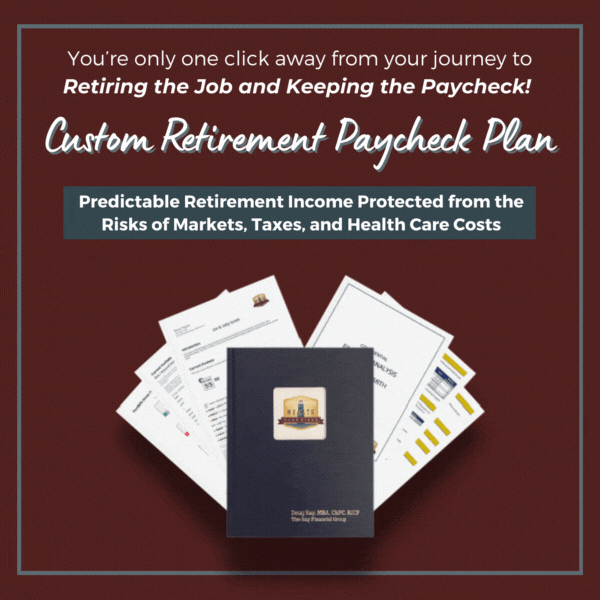 After years of saving and planning for their golden years, many people nearing retirement fail to consider the tax burden they may face on income they receive after they stop working. While you will likely see a reduction in the amount of taxes you owe after the age of 65, you still need to plan ahead if you want to minimize your tax bill from the IRS.
After years of saving and planning for their golden years, many people nearing retirement fail to consider the tax burden they may face on income they receive after they stop working. While you will likely see a reduction in the amount of taxes you owe after the age of 65, you still need to plan ahead if you want to minimize your tax bill from the IRS.
Social Security Benefits
Depending upon your total income and marital status, a portion of your Social Security benefits may be taxable. For a rough estimate of your potential tax liability, add half of your Social Security benefits to your projected income from all other sources. This figure is your adjusted gross income (AGI), plus any tax-free interest income from municipal bonds or foreign-earned income. Up to half of Social Security benefits are taxable if this sum, which is called your provisional income, exceeds $25,000 for singles or $32,000 for married couples filing jointly. However, up to 85% of Social Security benefits are taxable if your provisional income is above $34,000 for single filers or $44,000 for married couples filing jointly.
Use the Social Security Benefits Worksheet in the instructions for IRS Form 1040 to calculate the exact amount of taxes owed. Rather than writing a large check once a year, you can arrange to have taxes withheld from your Social Security benefits checks by completing Form W-4V and filing it with the Social Security Administration.
Other Income Sources
In addition to collecting Social Security benefits, most retirees receive their income from a variety of sources, including distributions from 401(k) accounts and individual retirement accounts (IRAs); payouts from company pensions and annuities; and earnings from investments.
Contributions and earnings growth are tax deferred on 401(k)s and traditional IRAs; however, distributions from these accounts are fully taxable, but have no penalties if withdrawals are made after age 59½. If you have savings in 401(k) accounts or traditional IRAs, you must begin making withdrawals from these accounts—and paying taxes on the distributions—by April 1 of the year following the year in which you reach age 70½. If you are at least 59½ years old and have owned a Roth IRA or Roth 401(k) for at least five years, withdrawals are completely tax free. There are no minimum distribution requirements for Roth accounts.
Strategies to Minimize Taxes
Most retirees with nest eggs or pension income of any size will pay at least some taxes on their retirement income, but there are strategies to reduce the amount owed. While it usually makes sense to delay taking taxable distributions from retirement accounts until the funds are needed, or until distributions are required, you may want to withdraw more funds in tax years when claiming a large number of deductions temporarily lowers your tax rate. You may, for example, choose to take advantage of itemized deductions, such as the breaks for medical expenses or charitable gifts, in certain years, while taking the standard deduction in other years.
A desire to leave a portion of your assets to your family may also influence how you handle withdrawals from tax-deferred accounts. Keep in mind that, if you leave behind funds in a traditional IRA, the rules for inheritance can be complex. To avoid these issues and make it easier to pass on your estate to family members, consider converting traditional IRAs to Roth IRAs. While you will have to pay taxes on the funds converted, moving to a Roth IRA eliminates future tax liabilities, regardless of whether you use the funds in retirement or pass the money on to your heirs. Alternatively, you may wish to consider cashing in your traditional IRAs and using the funds to purchase tax-free bonds or a life insurance policy that will provide your heirs with a tax-free inheritance.
If you are planning to retire soon, consider the tax implications of your income to avoid an unexpected bill from the IRS. For more information, consult your tax professional. If you do not currently have a tax professional, we can help refer you to one.
Most would agree that the less taxes you pay the more money you have in your pocket, but just because you’re enjoying retirement doesn’t mean you’re free from Uncle Sam’s obligations. Recent changes in tax law present the opportunity to take advantage of ‘taxes on sale’ and the sale doesn’t last forever. Our Custom Retirement Paycheck Plan will help determine the best strategies to minimize your taxes now and going forward. Regular account reviews provide the opportunity for adjustments as life changes.
Our Custom Retirement Paycheck Plan shows how to protect your retirement from the risks of unexpected market swings, tax changes, and health care expenses using a mathematically tested strategy to create lifetime income allowing you to stop worrying about outliving your money and get on with enjoying the rest of your life.
Let us show you in black and white a custom retirement income plan that is comprehensive, individualized and based on strategies that balance growth with downside protection. Get your Custom Retirement Paycheck Plan now!
Give us a call at our Charlotte office at (704) 248-8549, or our Clemmons office at (336) 391-3409. Or, click here to request a no-cost, no-obligation meeting.
[SOURCES & ADDITIONAL DISCLOSURES]
Copyright © 2022 Liberty Publishing, Inc. All rights reserved. Distributed by Financial Media Exchange.







